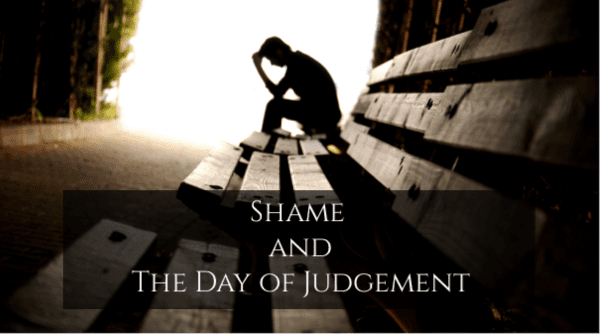During this month of November, the Church’s liturgy (together with nature all around us) invites our hearts to consider the realities of death and judgment – events we prefer not to ponder, especially in our culture of comfort and hedonistic escapes.
The monks of the Middle Ages left us with a haunting, yet stunningly beautiful hymn entitled the Dies Irae, which proclaims that the Day of Judgment is at hand, and urges us to cast our hopes of salvation on Jesus Christ, as he resurrects us and tells the true story of our lives.
In elegant Latin verse, the hymn summarizes that great and dreadful Day: the world as we know it will be dissolved into ashes, the trumpet will sound, and all the dead will be raised from their tombs. Death itself and all of nature will stand agape as the Just One assembles us all before his throne. The written book will be brought forth, in which all is contained, and the stories of that book will be told publicly for all to hear. Whatever has remained hidden will be proclaimed openly. My true story and yours will be told in all fullness
At first blush, the thought of my full story being told for all to hear, full and unabridged, is utterly terrifying. When I tell my story to others, I get to pick and choose what they hear, to keep certain things in and leave other things out, to shade things my way. Not so on the Day of Judgment. My truth is my truth.
But I am learning that, rather than being a day of deep shame, the Day of Judgment (if I desire it) will actually be a day on which I am definitively healed from my shame. The very shame that fills me with dread at the thought of being seen and known is the very shame that needs to be brought to the light of day, indeed, to the light of The Day so often promised in Scripture. Until I am fully seen and fully known, I cannot truly be myself.
Is the Day of Judgment not a Day whose coming we pray for daily? Jesus taught us to pray, “Thy Kingdom come!” Many Christians often pray, “Come, Lord Jesus!” – in words that echo the last words of the Bible: marana tha (“Our Lord, come!”). If he does not come with the fullness of his truth and love, we will never become our truest and deepest selves. We will remain less than fully human.
Shame is a heavy burden and one with which I am quite familiar. I have spent most of my life finding ways to hide my true self from others. As an infant, as a child, as an adolescent, and beyond, I learned to hide what I was really feeling (shame, sadness, loneliness, or anger). I even pretended for many years like I didn’t have those feelings at all! I learned to be “independent” and self-reliant, pretending like I didn’t need anything from others. Needing others felt shameful. Reaching out for kindness and support felt uncertain and unsafe. And all the while a deep and painful loneliness grew – undetected for many years because it was the ocean in which I was swimming for so long.
In my hiding, I developed a vast array of subtle (or not-so-subtle) defenses that proved highly effective in keeping other people from having access to my truest, deepest self. What a bind that creates! My inner self continues (as God made me) to desire deeply to be seen and known and understood and accepted for who I really am – yet the moment good people actually draw near, I still tend to react in ways that keep them at a distance. I put on one kind of mask or the other, so they can’t see the real me.
Then, of course, there are my many sins – all the ways, over the years, in which I have stumbled in my ungodly self-reliance and self-protection; the harm I have caused to others and to self; the rupture to relationships. There are my darkest or most twisted fantasies – the “if only…” thoughts or urges that I like to pretend are not really there. How could I possibly look forward to those being proclaimed publicly on the Day of Judgment?
The Dies Irae provides the answer to all this anguish after it asks similar questions. What am I to do, poor wretch that I am, in the face of so great a Judge, before whom even the just cannot be secure? Is there anyone who can plead for me on that Day?
Yes. The King of Majesty will plead for me. He freely and gratuitously saves those who desire salvation. He longs to save me.
The hymn proceeds to tell the ultimate story, the definitive story – the story of Jesus, who though divine, freely and willingly emptied himself, became one of us, and saved us in his Passion and Resurrection. When my story is perfectly united to his story, every moment of my life has new meaning. All my masks can be removed and laid to rest, my true self can be seen, and all can hear my full story – a story redeemed and transformed by Jesus. When my story is told, all can hear how Jesus was there at every moment – especially the moments of greatest heartache, heartbreak, and shame, moments in which I was betrayed, moments in which I betrayed others. All the while he was attuning to my heart, and gazing upon me with love and kindness as a beloved child of his Father. He was suffering with me and for me, weeping with me, breathing life into me, and rejoicing with me.
When we talk about dying with Christ and rising with Christ, it is so much more than a cliché! We prefer to compartmentalize and lock away certain parts of our story. But that means leaving them unredeemed, and it means not being a whole person in Christ. Only when we allow him, the Alpha and the Omega, the true author of all human history, to take authority over all these shards and fragments, can we find ultimate resolution to the discord in our story. That means going down with him into the dark places and allowing him to shine forth with his love and truth. We all have memories in which (if we are honest) we do not truly believe that God is good. Jesus surprises us with the new life of his resurrection and opens us to be loved even in those memories in which we feel unlovable. We don’t have to hide.
The Dies Irae has many dark notes in it, and is a beautiful hymn. It ends with stunning trust and hope in the one who loves us and so empowers us to be just and holy. Perhaps the book that will be opened on the Day of Judgment will be more like a book of music. Each of our songs will be sung. No doubt, there will be many discordant measures, bearing witness to our darkest days. But if I give Jesus permission to tell my story, it will be a song that gives great glory to God. And all those assembled will only be able to sing a resounding “AMEN!” in response – for he is Truth itself.
=======
P.S. – This piece by the CBC explores the vast musical influence of the Dies Irae over the centuries.




